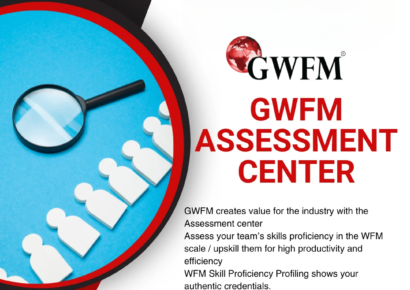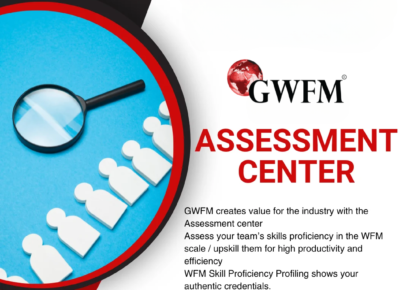Currently Empty: $0
Blue Book: RETHINK OF WFM INNOVATION & PUSHING THE BOUNDARIES (Use-Cases) 3rd Edition 2023
About Course
Blue Book 3: RETHINK OF WFM INNOVATION & PUSHING THE BOUNDARIES WFM Hackathon Innovation (Business cases crafted by 100 WFM professionals from global industries)
GWFM innovation has created and helped in 10 Ways to Driving Business
1. Create a roadmap for the Future.
2. Identify the Right Problem.
3. Team Collaboration & innovation.
4. Deep Understanding of Customers.
5. Stay ahead of the Competition.
6. Get more opportunities.
7. Clarity in Meetings.
8. Improve Customer Experience.
9. Stay relevant to needs for now and the future
10. Improve the revenue and profitability with a better WFM strategy
GWFM has crafted the first WFM hackathon in the world, did you know WFM Hackathons and Design Thinking are a match made in innovation heaven? “We call WFM professionals Hackers, Ideators, and Innovators, because they possess the skills to find creative solutions, generate new ideas, and bring innovation to the workplace.” Design Thinking is one of the key skills for the future of WFM professionals.
The Hackathon was needed for the hour to create an innovative platform to solve business problems. Hackathons earlier were confined to only technical and industry products while Stanford University further crafted for human-centric.
WFM Hackathon is going to be a common phenomenon in the WFM industry to build ongoing innovations. Organizations should have a team with yearly planned projects to take up, create a roadmap for the future, identify the right problem, team collaboration, deep understanding of customers, stay ahead of the competition, get more opportunities, clarity in meetings, and improve customer experience. The WFM Head should be an active owner to drive the WFM innovation center within the WFM function in the organization and drive regular innovation
WFM Hackathons and Design Thinking are a match made in innovation heaven
The best hackathons require a diversity of ideas. There are no bad ideas and no irrelevant sources. Let’s take the banking example, would you want your clients to keep griping about your horrible customer service on social media? How about you invite a couple of your most irritated customers to share their idea of good customer service, while you’re at it, have folks from your marketing team join in, bring in some of your call center team members, invite a couple of people from your web design team, some client relationship managers, maybe even a former client or someone who has never done business with your bank, your could even throw in a couple of people from the finance department or maybe even reps from the company that service your ATMs. Get the idea? There are no rules!
Bringing together innovators from diverse backgrounds and varied viewpoints fosters what the Institute for Design at Stanford refers to as ‘radical collaboration.’
As one would expect, there is an initial awkwardness that comes with creating a diverse team and tasking them with working toward a common goal. Psychologist Bruce Tuckman coined the phrase “forming, storming, norming, and performing” to describe the path that most teams follow to high performance. Tuckman must have run a few hackathons as part of his research to reach this widely accepted conclusion.
What are the innovations in WFM?
Several innovations were shaping the field of Workforce Management (WFM). Keep in mind that the landscape is dynamic, and new innovations may have emerged since then. Here are some trends and innovations in WFM:
1. Artificial Intelligence (AI) and Machine Learning (ML)
• Predictive Analytics: AI and ML are used for predictive analytics to forecast demand, optimize staffing levels, and enhance scheduling efficiency.
• Chatbots and Virtual Assistants: AI-powered chatbots and virtual assistants are increasingly used for employee queries, automating routine tasks, and improving communication.
2. Mobile Workforce Solutions:
• Mobile Apps for Employees: WFM systems are integrating mobile apps that allow employees to access schedules, submit time-off requests, and receive updates on the go.
• Geofencing: Mobile solutions leverage geofencing to track employee locations for tasks such as clocking in and out or assigning work based on proximity.
3. Real-Time Analytics and Reporting:
• Dashboard and Visualization Tools: Advanced analytics dashboards provide real-time insights into key workforce metrics, allowing managers to make data-driven decisions on the spot.
• Customizable Reports: Enhanced reporting features allow organizations to create customized reports tailored to their specific needs.
4. Employee Engagement Platforms:
• Surveys and Feedback Tools: WFM systems are incorporating tools to gather employee feedback, measure engagement, and identify areas for improvement.
• Recognition and Rewards Integration: Some platforms integrate employee recognition and rewards features to boost morale and motivation.
5. Flexible Scheduling Solutions:
• Dynamic Scheduling: Tools that offer dynamic and adaptive scheduling, allowing organizations to respond in real-time to changing demand and workforce availability.
• Shift Swapping Apps: Platforms that facilitate easy shift swapping and schedule adjustments among employees.
6. Task Automation and Robotic Process Automation (RPA):
• Automated Workflows: RPA is used to automate routine tasks, reducing manual work and improving overall process efficiency.
• Integration with Other Systems: WFM systems are integrating with other business applications through APIs, streamlining cross-functional workflows.
7. Compliance Management:
• Automated Compliance Checks: WFM solutions are incorporating automated compliance checks to ensure adherence to labor laws, industry regulations, and internal policies.
• Leave Management Compliance: Enhanced features for tracking and managing various types of leaves while ensuring compliance with applicable laws.
8. Remote Work Support:
• Remote Work Tracking: WFM tools are adapting to the rise of remote work by providing features for tracking remote employees, managing distributed teams, and ensuring productivity.
• Collaboration Integrations: Integration with collaboration tools to streamline communication and collaboration in virtual work environments.
9. Wellness and Mental Health Support:
• Wellness Programs Integration: Some WFM platforms integrate wellness programs to support employees’ physical and mental well-being.
• Mental Health Resources: Providing access to mental health resources and support directly through the WFM system.
10. Blockchain for Workforce Verification:
• Credential Verification: Blockchain technology is explored for secure and transparent verification of employee credentials, certifications, and qualifications.
11. Augmented Reality (AR) for Training:
• AR-Based Training Modules: AR is being used in WFM for immersive and interactive training experiences, especially for roles that involve hands-on or technical skills.
12. Integration with Learning Management Systems (LMS):
• Training and Development Integration: Seamless integration with LMS for comprehensive employee training and development programs.
Please note that the WFM landscape is continually evolving, and organizations may adopt and adapt these innovations based on their specific needs and industry trends. It’s advisable to stay updated with the latest developments in WFM technology and practices
Course Content
GWFM Certification Recognition & Branding Guide
-
GWFM Certification Recognition & Branding Guide
05:00









Kapil Dev
Issac Thomas Thayil
gowham ramaraj
Ravikiran Karasi
Soumya Dash
Anish Mitra
Malay Saha
Shobha Badrinath
Helena Xuxa Garcia
Udhaya G
Savitha AS
Ashok M
Bala Parameswari
Mayur Dulhani
Amit Anand
Pavithra Mary
Paul Pandian R
Ayon Roychowdhury
Sameera Gafoor
Rajarshi Das